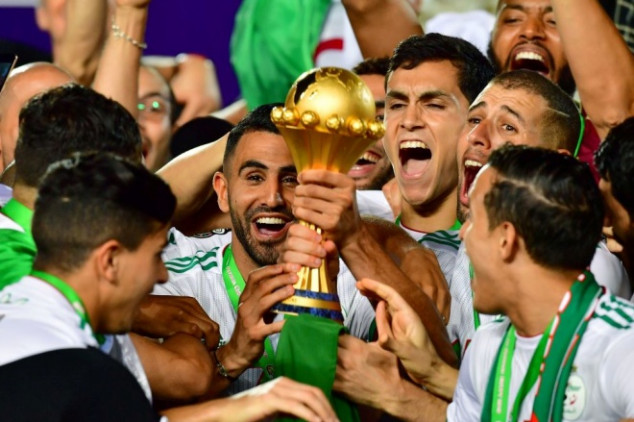On Sunday, the long-awaited 33rd edition of the African Cup of Nations (AFCON) tournament gets underway, with Cameroon serving as hosts. The competition was initially supposed to take place in 2021, but ended up being postponed due to the ongoing COVID-19 pandemic, but finally after much delays, 24 teams will all vie for a chance to be crowned champions of Africa.
Algeria come into this contest as reigning champs, having won the last iteration back in 2019. Meanwhile, Cameroon will be hoping their home pitch advantage will give them an added edge as they look to win their first title since the 2017 AFCON and their sixth overall.
So, as we look forward to what should be a highly entertaining contest, let's have a quick look at some history and background of Africa's premier national tournament.
The African Cup of Nations first made its debut in 1957. Three teams: Egypt, Sudan, and Ethiopia all took part. If it seems a bit odd that only three teams were involved, well, the reason is simply that South Africa, who were initially supposed to take part, were disqualified due to their apartheid policies that intended to exclude black players from the team.
As a result only two games were played, with Egypt beating both Sudan (who were serving as hosts) in the semi-finals and Ethiopia in the final, with Mohamed Diab Al-Attar, commonly known as "Ad-Diba" scoring all four goals.
By 1961, the tournament had expanded to nine teams, and Egypt came into that contest as the two-time reigning champions. However, a three-peat wasn't on the cards, as Ethiopia got revenge for their 1957 finals humiliation by beating the Pharaohs in extra time. Although Egypt haven't won a AFCON title since 2010, their seven titles make them the most successful team in the competition. Liverpool ace Mohamed Salah, of course, will be looking to help guide his team back to the winners' podium after over a decade away, but they'll surely face plenty of competition.
The 1960s were a great time for Ghana, as the Black Stars made their first appearance in 1963 and won the final in their first attempt after beating Sudan. By 1970, Ghana were featuring in their fourth consecutive final, albeit they were beaten 1-0 by Sudan, which marked the second straight finals defeat for the Black Stars. To date, they've won four titles, which puts them third in terms of trophies won, but none since 1982. The closest they've come is finishing as runners-up in 2015, when they were defeated by Ivory Coast after a grueling penalty shoot-out (9 to 8).
20 years later, it was Cameroon's time to shine. Nicknamed the Indomitable Lions, Cameroon truly are a powerhouse on the African continent. Not only are they the first team to make it to the quarter-finals of a World Cup, but they've qualified for more tournaments (seven) than any other country in Africa, not to mention winning gold at the 2000 Olympic Games. And not surprisingly, when it comes to the AFCON, they've dominated that landscape, too.
During the 1980's, Cameroon won two titles (in 1984 and 1988) while they finished as runners-up in 1986. After struggling during the 90's, they came roaring back in the noughties, winning back to back titles in 2000 and 2002, before winning their fifth over a decade later in 2017.
Algeria, meanwhile, won their second title in 2019, and will come into this contest as the reigning champs. The competition has also grown significantly over the years, and this edition will feature 24 teams, including two debutants: Gambia and Comoros.
So, as we await the beginning of a new AFCON tournament, which will kick off with Cameroon vs Bukina Faso, will we see more nations writing their histories over the next few weeks? We won't have to wait too long to find out, as the tournament's beginning is just looming over the horizon.





























